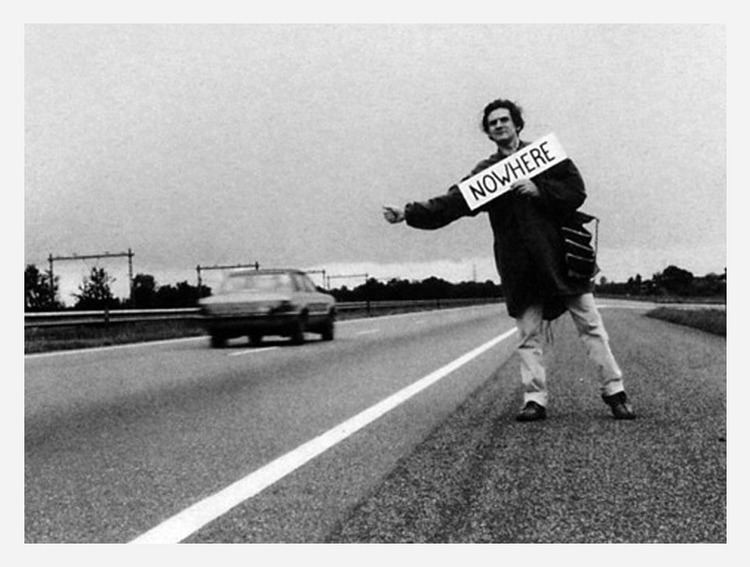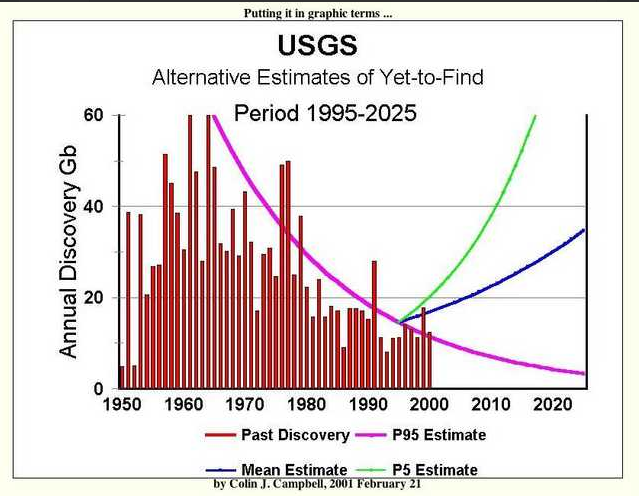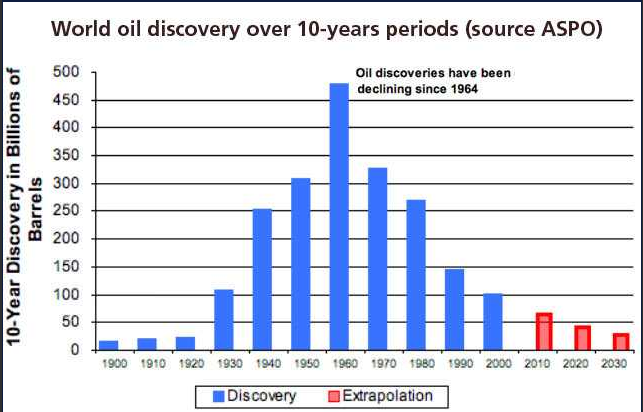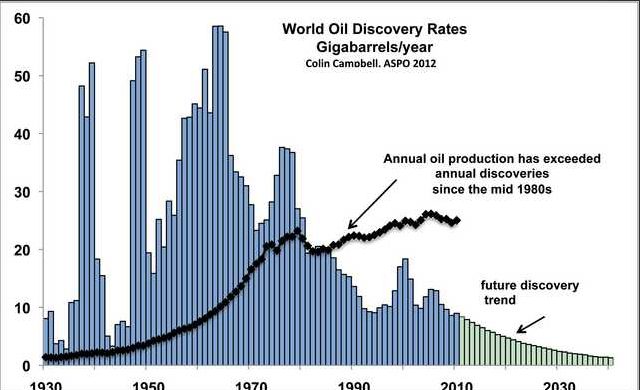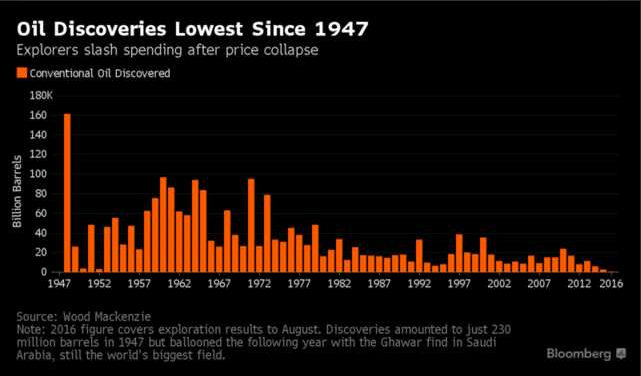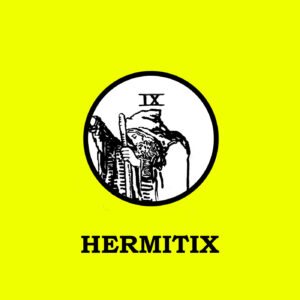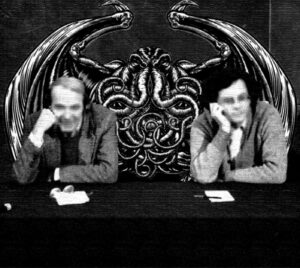The Genealogy of Foucault’s Numeric Power Structures – Man Under Number
By Meta-Nomad
Essay constructed whilst listening to Röyksopp’s Senior – here, listen.
PDF Link for easier reading.
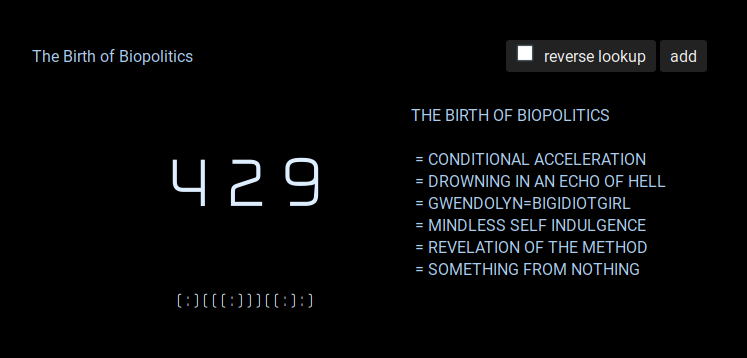
Introduction
In this essay I primarily use Michel Foucault’s text The Birth of Biopolitics (2010) to extrapolate and theorize on the socio-economic genealogy that is created after the Enlightenment. I propose that distinctive to the process of the Enlightenment was a fundamental cultural shift towards the assimilation of number into every facet of man’s life. My task is not to ask ‘Why?’ this new numeric culture arose, nor ‘Why?’. My sole task is to analyze the full economic, social and political genealogy it gives rise to in relation to man’s understanding of himself. I shall note that the genealogy itself is theoretically auto-catalytic (as shown by Fig 1), as such the linearity of the essay is continually reliant on the extrapolation of a previous section. As such I have written this essay in such a way as to expound upon that which I believe to be the largest ‘macro’ first (the culture of number) and continued genealogically through to the smallest ‘micro’ (man as homo-economicus). Though there is a quasi-hierarchical relation between the influence of some parts of the genealogy upon others parts, no part can exist without any other, as such the structure of the text acts only an illusory form of cohesion in relation to that which is ceaselessly auto-catalyzing between systems, structures, institutions, temporalities, cultures and frameworks.

(Fig 1 – The Auto-catalytic Nature of Modernity’s Numeric Genealogy)
Man’s Maturation and Enlightened Numeric Systems.
This essay’s respective ‘parts’ form a cohesion in relation to the maturation of man [1]. This process of maturation is inherently connected to time, it is a temporal process, one matures over time. The key ‘era’ of man’s maturation, in inherent distinction to others, according to Kant (Kant, 1784) was the ‘dawn’ of the Enlightenment. A process beginning with the 16th (Foucault, 2000, p307) century and continuing through to the early 19th. A process which has become synonymous with the arrival/birth of modernity (Ibid, p303-304, 309). The Enlightenment is a process situated within history, from which “Man puts his reason to use” (Ibid, p308). To utilize his reason, his human reason as a form of exit from the authoritarian and theological structures of the Other (Ibid, p306) that dominated the thought of the subject prior. To understand the world within man’s own cognitive capacity, this is what is meant by critique (Ibid, p305); the Enlightenment is the dawn of anthro-limit-acceptance. The systematic modification of will, authority and reason (Ibid, p305) that takes place within the Enlightenment is a distinctly temporal form of maturation – “because illumination takes time” (Land, 2013), linked to an ongoing histo-cultural process. Epistemologically locked to the changes taking place within said process. There was a darkness and calculation – as I will show – lead man to the En(Light)enment. The grammatical focus on the singular notion of an Enlightenment confusingly removes it from its true nature as process, a process within a larger process of techno-capital which it helps/allows to birth. Inherent to the system of the Enlightenment is a historical and numerical overlap which allows man to fully mature, the historical and systematic roots of which I shall now begin to pull up.
To state that the process of the Enlightenment is at its core historically and culturally mathematical would be the understatement, with regard to not only history, but to man’s nature and ‘nature’ in general – as I shall show further on. The proto-process of the Enlightenment begins much earlier that the 16th century, Crosby notes the process begins – less systematically – in the 13th century (Crosby, 1996). Yet full scale numeric-cultural assimilation of which is the focus of the this essay doesn’t arrive until the 16th century. From then on its arrival is so militaristic one wonders where numbers do not pry: Military textbooks (Ibid, p6), mathematical clocks (Ibid, p19), abacus’ (Ibid, p112), roman numerals (Ibid, p115), Mercantilism (Porter,T,M, 1986, p20), Malthusianism (Ibid, p26), Victorian social policy (Ibid, p30-31), standardization of measurements and time (Porter,T,M, 1996. p29, 93, 207, 224). The physics of Kepler, Galileo, Descartes and Newton, Stevin’s decimalist fractions (1585), Napier’s logarithms (1614), Fermat (1636) and Descartes’ (1637) geometry, Leibniz (1684) and Newton’s (1687) calculus and so on (see secondary bibliography on Enlightenment texts). As I previously stated in the introduction, my task is not to theorize the how or why the numeric cultural methods became so prevalent within the process of the Enlightenment, but to ask what these new numeric methods/attitudes do to man, how they alter man. What happens to the ‘homo sapiens’ when systematically introduced to number. That of man’s maturation under number? For a thorough analysis of this I turn to Foucault’s Birth of Biopolitics (2010).
A continually self-aggrandizing numeric process/culture which begins and succeeds in applying and parasitically assimilating number, math, calculation and quantification onto and into every facet of society. Number and limit convert man’s most basic and fundamental actions from subject oriented actions of the ‘immature’ self into economic possibilities: growth, gain, loss, limit, production and profit etc. The aforementioned numeric and mathematical events taking place within the Enlightenment convert society into a culture of the abacus, of ones and zeroes, pluses and minuses, controlled by chronic, linear time; “Modernity is often situated on a calendar” (Foucault, M, 2000. p309) notes Foucault and yet one struggles to rigorously select the dates unto which we can say ‘modernity’ precisely takes place. However, one can say that without modernity calendars cease existence, at least in our current systematic understanding of them. Calendric culture is modernity, a grid-like structure atop the world locking culture into smaller and smaller parcels and units of time. The calendar is the metaphor for modernity, a thorough process of temporal atomization unto which one can easily control the minute boxes are produced from it. A time built for control, from mathematical means of control. Firstly, the newfound numeric culture must assimilate into the ‘macro’ as a means to alter the ‘micro’; society first, only then to man.
Assimilating the Attitude of Modernity into Society
The numeric attitude of modernity aforementioned, complete with its assimilation of reasoned, mature, calculable limit into every facet of life shall forthwith be called ‘the attitude of modernity’. This attitude – for reasons I expand upon later – exists everywhere, and so, to get to the question of this essay, namely ‘man’, I must follow the constitutive parts of a numeric genealogy which begin their journey as the formation/creation of the synonymy of society and economy, and from there onward affect man more directly and purposefully. Yet one must extrapolate on that which man is within and in some sense being molded by before attending to the singular unit of man himself, he exists roughly at the ‘end’ of a genealogy: Number, economy, state and finally man.
Once the attitude of modernity infects society the task of society fundamentally changes, due to its newfound utilization and reliance on number and thus numeric/economic systems. This newfound raison d’Etat has at its core a critique of the ‘art of governance’ inherently connected with number (Foucault, M, 2010. p6), for the understanding of ‘limit’ is not possible without a coherent ‘lesser’ or ‘greater’, a mode of thinking made available by number. As such government begins to understand itself in relation to its own limitations and precisely because of this self-understanding it can begin to place itself within and enter into competitive frameworks, as well as this government also begins to understand its own internal limits and begins to regulate where it deems fit. Both the external mode of competition and internal mode of regulation are made possible by alterations both in communal/societal understanding of limit via numeric education and nature (later). This raison D’etat which takes the form of “internal limitation of governmental reason” (Ibid, p13) – or perhaps, ‘the maturation of government’ – is made possible by the arrival of ‘political economy’ (itself arriving synchronously with the numeric attitude) – “a method of government that can procure the nation’s prosperity” (Ibid, p13). Political economy in its mutual utilization of the attitude of modernity acts as governmental reflection (which was previously based upon morals, theology or law) ground down to ones and zeros, positives and negatives of wealth, value and capital (Ibid, p15). From this form of epistemological and governmental legitimacy wherein profit is ‘correct’ (Ibid, p14) “the economy produces the legitimacy of the state – the economy creates public law” (Ibid, p84), for law need only be tailored towards – the same now for everything else in society – the growth of the economy in relation to the nation. And so there is a ‘permanent genealogy of the state from the economic institution” (Ibid, p84) the actions of society become the actions for the growth of the economy and so succinctly, society becomes equal to economy.
To continue with this exposition of genealogy in the direction of man I must reach back to where I began. The attitude of modernity makes the society within its clutches understand itself in relation to its own attitude and epistemological legitimization of economic growth. All that is macro (society & state) or micro (man) is assimilated into the controlled signification of society now synonymous with economy, as noted by Foucault:
“The economy produces political signs that enable structures, mechanisms of justification and power to function – the free market, the economically free-market, binds and manifests political bonds.” (Ibid, p85).
This form of economic positive-feedback-loop creation is genealogically bound to the economy – the creation itself made possible by the maturation of man. The positive feedback loop of the economy is reliant on material agents who understand and make intelligible its system (men) to feed its growth-directed abacus. Man’s economic choices within this economic loop compound into a single choice, the choice for the continuation of the economy beneath him. This is the only societal choice if one is to utilize the logic expounded previously: A nation’s prosperity is in relation to the growth of the economy, arguably the average man wishes for the betterment of his nation and in turn himself (from his nation), as such the purpose of man – survival, betterment, wellbeing[2] – becomes equal to attending to and helping the economic growth of the/his state/nation. For what now exists outside of the economy is now also outside of society and as such struggles, due to lack of institutional support networks, to survive. Man’s remaining options are to attend to the expansion of the economy or beg for scraps external to all systems. The attitude of modernity is a parasite infecting both at an individual and social level as to legitimize growth-as-wellbeing via intelligible mechanisms, and so, for man to improve his wellbeing he understands via signification produced by the economy that he must improve the growth of the economy – his ‘purpose’ has been replaced with a clearer economic purpose, his material meaning fulfilled, but what of his nature?
Nature and Political Economy
Political economy has arrived, as such the fundamental notions of nature, society and economy and man have changed, and so the state has inherently altered and modified into a system that mutates governmental practice into an economic entity – “Political economy [a] method of government that can procure prosperity.” (Ibid, p13). To prosper, to grow and to profit. Political economy is the numeric reflection of governmental policy via its economic effects and choices. This socio-economic abacus of political economy reveals [3] the intelligible mechanisms (Ibid, p15) of the economy. Mechanisms that once revealed can be taken by government into a loop of creation and utilization, to alter and direct their mode of governance in relation to a personal ideology. To chain the flow of capital towards a humanist venture. For the mechanisms cannot be avoided (Ibid, p15), and so are to be directed – which is considered by Foucault to be to the detriment of the free-market (Ibid, p116) – or are simply to be left alone, to be [a] free [market]. These mechanisms become nature via their synonymous actions alongside the attitude of modernity. Numeric attitudes allow such mechanisms an actuality via cultural assimilation of the means of understanding the mechanisms (mathematical education). This in turn assimilates into the collective engagement of society and government – “The notion of nature will thus be transformed with the appearance of political economy.” (Ibid, p15).
If we’re to take Foucault at his word when he states “Nature is something that runs under, through, and in the exercise of governmentality.” (Ibid, p16) then it follows that the reveal of political economy, and political economy itself is natural – for political economy is merely a modification of governance in relation to cultural progression maturation and alteration. There is no mutation in/of nature, we have simply revealed a further part of its form. The attitude of modernity as parasite in accordance with the political economy adheres to the previous culture of society/man and directs it via assimilation with mathematics towards a new form of natural behaviour in-keeping with the modern attitude. Number begets number via parasitic invasion of man’s being, allowing man to enter into the epistemological framework which reveres markets as signifier of truth.
Further investigation with regards to man’s ‘new’ natural reality of political economy is paramount to understanding his new being. For within man’s ‘new’ nature – now simply ‘nature’ – the choice of taxes at a politically economic level is a now simply a question of growth in relation to the state within which that political economy exists, does doing X to Y result in growth. The competitive essence of growth quashes archaic modes of ‘right & wrong’ via the assimilation of the attitude of modernity into every facet of man’s praxis. From (new) nature man now understands his purpose in relation to growth, and so all his actions are to be taken and made in relation to growth. Truth, for man, now lies solely – within a free-market capitalist mode of economy – within the potential for national prosperity, itself connected to the ‘regime of truth’ (Ibid, p19) connected to government via natural signification – “the site of truth is the market” (Ibid, p30). From this complex interwoven process of maturation via number, agents, economy, state and markets arises a norm. A mode of societal and governmental normitivity arises from the black unknowability of all economic processes. Man’s new mode of being – political economy as society aside – is to adhere/revere the normative, calculating, reasoned and epistemologically numerical economic mode of being, itself arisen from the secular domain of economy. Nature now runs through government as a mode of economic truth, an individual and collective mode of being made possible by the process of the Enlightenment’s maturation being synonymous with the assimilation of numerical attitudes into culture. This ‘mode of being’, for man, is to be ‘homo-economicus’.
Becoming Homo-Economicus
But what of ‘man’ within this new reality, this ‘new’ nature? He too synchronously changes alongside and with the nature of the collective. Man transforms, he modifies into ‘economic-man’, ‘human-capital’, homo-economicus. This modification of ‘man’ happens not only at a sociological, political and economic level, but also more fundamentally at the level of identity, at the level of his very definition. Foucault notes the history of the Latin word for man – homo, e.g. homosapien – during the process of the Enlightenment (Ibid, p250). During which the abstract integration of ‘man’ (homo) into external systems of cultural, societal and – eventually – economic relation takes place – homo-penalis & homo-criminalis are two clear examples (Ibid, p250). Throughout the process of the Enlightenment, man’s maturation, the singular subject ‘man’ loses his state as subject-as-island, separate from systems, sovereignty and economics, he begins to become inherently integrated into the modern attitude itself via semantic means. A man who is a criminal is a criminal-man, a new singular semantic judgement. Yet more importantly, for not all men are criminals – all men are now, or have the capacity to be calculating, man’s critical future neologism as homo-economicus, economic-man is locked into the modern attitude of calculation, which itself is locked into the ‘new’ form of nature. Man’s assimilation into this new economic reality is made whole by this creation of a neologistic combination of biology and economy. The cultural integration of number infects man and makes possible his new, inherent tether to the economy. The process of the Enlightenment, the maturation process paves the way for his becoming-economic. If man is now to be, he must be economic, he must be homo-economicus.
“The homo-economicus sought after is not the man of exchange or man the consumer; he’s the man of enterprise and production.” (Ibid, p147). However, with regard to “enterprise and production”, Foucault does not believe this fundamental shift within the subject of man makes him merely a puppet of capital, pulled by larger, unseen economic forces. It places him within and of an inescapable and unknowable whole of economics which, as atomized homo-economicus, he now becomes within due to to his newfound intelligible abilities in relation to economic mechanisms, themselves in relation to the political economy. Homo-economicus is entirely a becoming, a temporal length of maturation in relation to his understanding and assimilation into the numeric/economic framework. This process of assimilating the attitude of modernity into man begins at birth. A child is human capital (p228). It is a maturation directed at the potential for future economic output, a numeric maturation. The capital that is a ‘young human/infant’ is thrown into a temporal framework of limitation in relation to the epistemological legitimacy of market processes at that current time: Age, intelligence, investment, health, family and future possibilities all act in relation to the potential of this atomized homo-economicus to supply the state with growth. Their only other option is to de-tether from the economy and risk death.
Man, for Foucault, throughout this entire process undergoes as complex change & modification – if not more so – as state and society, due to assumptions surrounding his own being and ‘subject’ itself being eroded. The new reality – nature – I previously wrote of is foremost ‘accepted’ by man, “The nature of human nature is to be historical, because the nature of human nature is to be social. There is no human nature which is separable from the very fact of society.” (Ibid, p299). Such a newfound reality/nature works upon man in way of altering the very definition of his being, modifying and directing his being into alternate pathways made available by number. During the maturation period – the Enlightenment – the concept of ‘man’ began its own semantic journey into critique, flirting with systems of its own creation – law, criminality and now economy – in ways never previously experienced. Viewing these systems not as external modifications and alterations to a (whole) self, but as internal mutations of the self into a new form of self. Man becomes criminal-man (homo-criminalis), and in the context of this essay man becomes economic-man (homo-economicus). One must understand that this acceptance of nature anew is man situated “in an indefinite field of immanence – linking him to a series of accidents. [See fig 1], linking him to production, to others – a doubly involuntary situation.” (Ibid, p277). Situated in a field of non-totalizable economic immanence, a field he partakes in via economic choice in relation to society via intelligible mechanisms, yet e only does so in an atomized manner. Such a reality is acceptance of life as an atomized conduit for Smith’s invisible hand. It is a life “in the dark [wherein] the blindness of all economic agents [men] [is] are absolute necessity.” (Ibid, p279). Foucault’s allusion to state-subject collapse in lieu of economic becoming is extreme, yet realistic in relation to man’s own limit. Man must remain blind to the totality of economic process for if he sees he risks vision of society as limitrophe of zero, of society & state-as-economy as teetering on top of a complex abacus of illusory numeric supports [4].
Man’s place within and of these supports is succinctly extrapolated by Foucault (Ibid, p84-85). Man is allowed by the institution – in relation to its merit now intelligible via number – to spend and act, simply because the institution wishes them to do so; it is in their interest to allow agents of the economy (man) freedom. It allows them with this freedom to state it is right to give them such a freedom – an epistemological loop of economic legitimization. Such actions/freedoms of man are always in relation to growth/loss etc, itself made intelligible by the epistemology of the market, and so man’s freedoms become legitimized via the regime of the market. As such, from the underlying epistemology of the economy via the intelligibility of the market comes the legitimization of all of man’s actions in relation to production, a consensus of production is produced by that which wants production – the economy. Within this positive feedback loop of human-wellbeing assimilated into the epistemological legitimization of production man becomes an agent of the economic process itself, from this loop man becomes homo-economicus, he becomes a partner of exchange (Foucault, M. 2010, p226) and as such a partner in the production of economic and political consensus via political signification made possible by intelligible market processes, (Ibid, p85) in tacit relation to the continual growth of runaway capital.
There is moments wherein man attempts reversion to his previous natural ‘state’, where he attempts to cordon or direct the free market economy, often resulting in detrimental effects (Ibid, p116) – these attempts are acts of competition in relation to internal and external limits. The market is pure competition (Ibid, p121) and so acts of limitation with regard to competition are anti-free-market, to regulate the economy is to regulate truth, to regulate nature. So if the market is left alone the remaining economic representation is the epistemologically (numerically) legitimized truthful vision of societal demands and desires, or else, if regulated, it is the signifier of ideology. This form of societal signifiers is synonymous with the arrival of political economy, itself synonymous with the arrival of homo-economicus.Both forming a complex whole, the existence of which is only possible on the condition of the existence of the aforementioned economized institutional framework of the state (Ibid, p163). Their adherence to the state is adherence to historical economic attitudes, or the attitude of modernity works within an institution to materialize a numeric-based power structure.
Temporal Power Structures
And yet, the seemingly bleak future for homo-economicus is tethered to a secondary means of control which has thus far only been hinted at with regard to its importance. This means of control is more complex in a far subtler way, the means itself is simple temporality and the realities it imposes on humans (mortality, health, productive output etc.). Yet at all junctures within both the process of maturation and the fully-fledged becoming of homo-economicus temporality is utilized by the economy via governmentality as a means for control. Before listing the simple/obvious practical means of control, I shall extrapolate on further ways in which temporality works synergistically with capital as a means of power over man. As I stated at the beginning of the essay one must not remove emphasis of the word ‘process’ in relation to maturation and the Enlightenment, this method of thinking about power must also be applied to the economy, for the economic processes unto which man is now befallen are equally forms of temporality, they are processes and at their core are actions of time. To paraphrase Foucault: the formalization of economic mechanisms and processes only exist in history (Ibid, p163) – there has to have been time for formalization to take place, no economy is a temporal moment/present. Not only do economic processes only exist and enact within history and time, but they also – within a numerical culture such as the one homo-economicus inhabits – use and utilize time as a means of control, as an economic means in itself. Foucault notes that the “economic reality of capitalism” we’re dealing with is “a singular figure in which economic processes and institutions call on each other, modify and shape each other in ceaseless reciprocity.” (Ibid, p164). Capitalism is a process of processes, “Capital is essentially /capitals/ at war among themselves.” – (Land, N. 2018, p1370). This ceaseless modification is ceaseless diversions of temporality attuning man’s life-cycle to a lesser or greater mode of profitability in relation to time. Each cross referenced via intelligible mechanisms to cater to its – capital’s – own impenetrable longevity. This history of ceaseless reciprocity, or history of economic histories “can only be an economic-institutional history.” (Ibid, p164). The overlooked factor in relation to the reality of man here is – surprisingly, with regard to Foucault – the temporal element. History, not only as supposed linear narrative of consistent economic growth or loss plotted upon a linear timescale, but also capital’s utilization of its own understanding of temporality used alongside and with the numeric attitude assimilated into man as a controller of homo-economicus. Capital utilizes temporality as a means to reinforce its fundamental social policy, growth (Ibid, p144), such a policy that is only possible via time. Capital is to utilize the temporality of man as a means of productive output, as a further means towards the best possible use of resources as an even further means towards growth. Capital takes man’s true limit and resource, time, and uses it for its own gain. Man has been systematically immanentized into the auto-catalytic schema of capital as human-capital, as part of the system himself, he is “one of the two partners of exchange in the process of exchange.” (Ibid, p225). Once man partakes – usually unwillingly – in the attitude of modernity he becomes human-capital and as such becomes – a form of – capital. A process in himself to be understood and modified by capitalism. The maturation of man during the “Western economic take off in the sixteenth and seventeenth century – Was it not due precisely to the existence of an accumulation, an accelerated accumulation, of human capital?” (Ibid, p232). This was indeed a physical accumulation of human capital, but at heart it was the accumulation of contained time as an investment in mechanisms of growth. Such an accelerative effect of accumulation was directly made possible by the assimilation of all human-capital onto an economic plane via numeric education.
Without the process of maturation, inclusive of the historic/cultural integration of number into society, man’s understanding of himself would have taken a drastic, unknowable turn…or perhaps he would have remained within a world wherein his understanding of his own ‘time’, lifespan and temporality would not coincide with number. However, the process of maturation did – or had – to arrive alongside the assimilation of mathematical education, for understanding one’s own limit is not possible with a numeric spine, as such the means of control of which the economy may utilize are larger and more intrusive.
As for the physical, practical ways in which the political economy, the economy, capital controls homo-economicus… in which it creates a power structure, I turn once again to time. Hours, minutes, seconds, linear/successive time, hours worked, rate of production, productive output, clocking-in-and-out, growth, decay, profit, loss, holidays, pensions, hourly salary, yearly salary, overtime, bonuses, years of service, dividends, bonds, stocks, bankruptcy, taxes, tax breaks, distance traveled to work and pay per hour. Each of these is made societally universal via the assimilation of the attitude of modernity into every facet of life, as well as each being uniquely connected to time via its own method of temporal control. Each of these – and many more – are actions of the aforementioned “ceaseless reciprocity” (Ibid, p164) of capitalism. They are modifications and alterations of the temporal lifespan of homo-economicus as a means towards greater productivity and growth. Not only does man have to be numeric, but his very temporal being is split, allocated and allotted as a means towards profit. The labor of profit is primarily man, and a mistake is made in relation to understanding profit as solely a monetary venture. Money is simply the signifier of the value allotted to the time worked within a particular context, by a particular human. ‘Time is money’ takes on literal significance in relation to money being the most common intelligible mechanism with regards to understanding growth. And so, the homo-economicus has a lifespan unique to its being, which from birth is for use by capital for capital “if capital is that which makes future income possible, then capital is inseparable from the person who possesses it.” (Ibid, p224). Under capitalism, capital makes future income possible, meaning that capital makes the future possible, for now the future cannot exist without being a continuation of the growth directed system of capitalism. The system of capitalism understands the economy in relation to homo-economicus as allotments of time, “the more we move towards an economic state, the more paradoxically the constitutional bond of civil society is weakened and the man the individual is isolated by the economic bond he has with everyone and anyone.” (Ibid, p303). The system of capitalism utilized the assimilation of number as a means to temporally atomize man into becoming an individual economic and temporal unit, perfect for utilizing with regard to exchange and production, each man their very own test-kit for capital. The attitude of modernity was thus the launch pad for capitalism to become a hegemonic, cosmic, numeric entity. Forcing men into semantic deaths of the self via institutionalized inescapable connections with the system itself. The parasitic structure of capital is such that the parasite exists in time, with time, and moves from host to host using their time – via practical, economic means – as a way to prolong its own existence, for the sake of its own existence.
Conclusion
“Capital is an abstract parasite, an insatiable vampire and zombie-maker; but the living flesh it converts into dead labor is ours, and the zombies it makes are us.” (Fisher, M. 2009, p15)
If we’re to follow the genealogical thread of number through to man, one comes to the bleak conclusion expounded upon quite heavily by Fisher in Capitalist Realism. The process unconsciously undertaken during the Enlightenment unleashed the vampiric means of capital. Careful attention to Fisher’s notion of vampiric capital however reveals one salient point, there is, supposedly, life-after-capital. You have become a zombified partner of exchange in relation to a large unknowable whole, yet you are still in control of your flesh, whether or not it is being eroded by the process of capital, used up by it. As I have shown the ‘abstract parasite’ of capital is so fundamentally tethered to a numeric-reality that expunging it from one’s system is, in reality, a temporally gigantic task. Global educational reversion towards a world of quality, away from quantity would be the task for those who intend to detach from capital. Foucault’s overlooked factor in relation to man not-becoming-capital-puppetry is his omission of the ways in which capital utilizes intelligible mechanisms as a way to justify its own reality, as the only reality. “If escape into capitalism isn’t the escape you want, then modern history is not for you.” (Land, N. 2018). If the maturation process, the ‘exit’ Kant spoke of is inherently bound to the attitude of modernity then there is no exit from capital, there is only existence within its self-selected direction. The conclusion of the genealogy expounded upon by Foucault, in relation to man, is that he is free to exist within the flow and process of capital, he may bare his flesh only in acknowledgement of capital.
Endnotes
[1] Though the process of man’s maturation with respect to Kant and Foucault could easily be deserving of its own essay, it is included here due to its unavoidability in relation to the topics discussed within and its connection throughout, as such it is expounded upon here as minorly as needs be, for this essay isn’t directly concerned with the Kantian aspect of the Enlightenment’s historical influence.
[2] I shall not argue the purpose or meaning of man’s life here, for I am taking it as a given via The Birth of Biopolitics that man directs himself towards personal wellbeing.
[3] Note that throughout The Birth of Biopolitics Foucault uses strictly Heideggerian language – specifically ‘reveal’ – as the way in which he understand the processes of economy. If one continues this thought, it seems applicable that the natural processes of economy were there all along.
[4]“The most merciful thing in the world, I think, is the inability of the human mind to correlate all its contents.” (Lovecraft, H.P., 2014, p381) Lovecraft’s notion that pure cognitive correlation is horrifically synonymous with the place in which man himself with regards to the reality of economic position, for him to see the ‘whole’ of the economy, is for him to correlate existence and time.
Bibliography
Crosby, A (1996) The Measure of Reality: Quantification and Western Society, 1250-1600. Cambridge, New York and Melbourne: Cambridge University Press.
Fisher, M. (2009) Capitalism Realism: Is There no Alternative? John Hunt Publishing.
Foucault, M (2000) Ethics: Essential Works of Foucault 1954-1984. Penguin Books, London.
Foucault, M. (2010) The Birth of Biopolitics: Lectures at the College De France 1978-1979. Palgrace Macmillan, New York.
Kant, I (1784) Kant: What is Enlightenment? [Online] Available at: (http://www.columbia.edu/acis/ets/CCREAD/etscc/kant.html#note1) (Accessed: 06/01/2019)
Land, N (2012) The Dark Enlightenment: Part 1. [Online] Available at: (http://www.thedarkenlightenment.com/the-dark-enlightenment-by-nick-land/#part1) (Accessed: 06/01/2019)
Land, N. (2018) Hermitix Podcast, Nick Land – Accelerationism and Capital. [Online] Available at: (https://www.youtube.com/watch?v=FgEqQujsNTY&t=) (Accessed: 06/01/2019)
Land, N. (2018) ŠUM, Journal for Contemporary Art Criticism and Theory, n. 10.2, Cryptocene
Crypto-current: An Introduction to Bitcoin & Philosophy. Društvo Galerija Boks.
Lovecraft, H,P.(2014) The Complete Fiction of H.P.Lovecraft. Race Point Publishing, New York.
Porter, T,M. (1986) The Rise of Statistical Thinking 1820-1900. Princeton University Press, UK.
Porter, T,M. (1996) Trust in Numbers: The Pursuit of Objectivity in Science and Public Life. Princeton University Press, UK.
Secondary Bibliography of Enlightenment Texts
Simon Stevin – La Disme, 1585
Franciscus Vieta – In artem analyticem isagoge, 1591
John Napier – Description of the Marvelous Canon of Logarithms, 1614
Joost Burgi & Johannes Kepler – Tabulae Rudolphinae, 1627
Bonaventura Cavalieri – Geometria Indivisibilibus Continuorum, 1635
Pierre de Fermat – Methodus ad disquirendam maximam et minimam et de tangentibus linearum curvarum, 1636.
Rene Descartes – La Géométrie, 1637
John Wallis – Arithmetica Infinitorum, 1655
Isaac Barrow – Geometrical Lectures, 1670
Isaac Newton – Philosophiae Naturalis Principia Mathematica, 1687
Colin Maclaurin – Treatise of Fluxions, 1742
Read More
